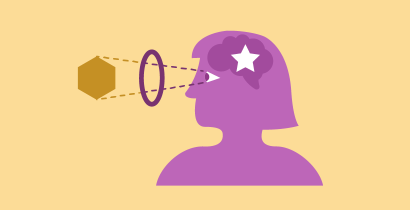Science in the media

The media is an important source of information for the public. From university research findings to scientific journals and conferences, the media directly impacts the decisions of consumers including what they buy, eat and believe in terms of food. As information passes from researchers to press officers to journalists to the public and misinterpretation of messages can take place at any stage, accidentally or deliberately. Simple things like learning how to check sources and understanding some basic scientific concepts can help us identify which information to trust.
What are cognitive biases and tips to improve your thinking
06 September 2023In today’s information age, our ability to make informed decisions is crucial, especially when it comes to nutrition and health. To make sense of the huge amount of information that surrounds us, our brains sometimes make systematic thinking errors – known as cognitive biases. This infographic explores seven common cognitive biases (confirmation bias, health halo effect, negativity bias, bandwagon effect, anchoring bias, false-cause effect, and the Dunning-Kruger effect) and includes tips to help you overcome them so that you can make more informed decisions.
